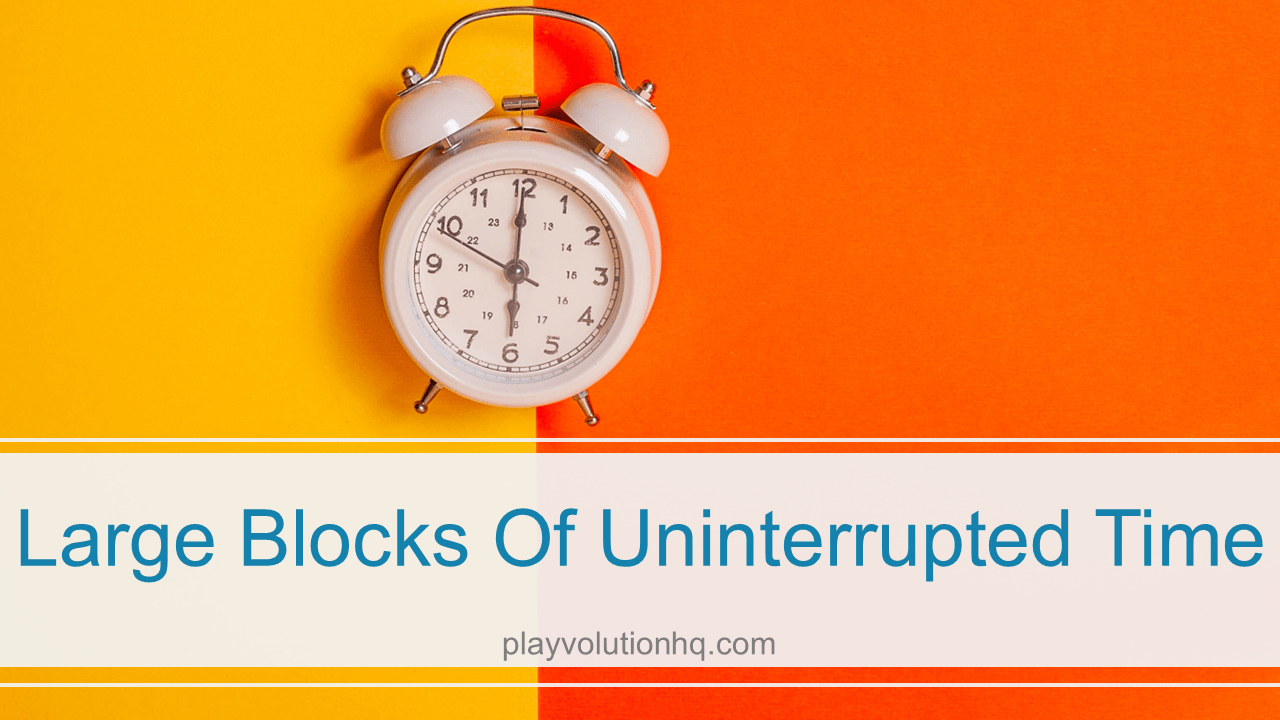
Table of Contents
Young children need large blocks of uninterrupted time for self-directed play and exploration. If we better understand and prioritize this, we create an environment where children thrive.
Young children need large blocks of uninterrupted time for self-directed play and exploration
This is the first in a series of posts looking at the core values of Playvolution HQ. What does “Young children need large blocks of uninterrupted time for self-directed play and exploration” mean? Let’s break that sentence down:
Young Children
Here at Playvolution HQ, I like to define early childhood as the period from birth through age 10. Some organizations cut early childhood off at age 8, but I think that’s rushing things. Even at age 10, children are still very new to the world. They are still growing into their bodies, learning to understand their emotions, and learning about their culture. The extra two years counteract the effects of age compression and the insidious rush through childhood, which is so endemic in our culture.
Large Blocks
When I say children need large blocks of uninterrupted time, I’m talking about hour-plus periods where they are in charge of what they’re doing. Too often, early learning settings slice the day into 30-, 25-, or even 15-minute segments.
The chopping up of the day creates two big problems:
- Children don’t get the opportunity to go deep into real play because there simply isn’t time
- Children are constantly disrupted by transitions between activities that are stressful for everybody involved 
Short chunks of time prevent kids from truly engaging, exploring, and learning. Instead, kids need fewer transitions and extended periods to engage in self-directed play and exploration.
Uninterrupted
“Uninterrupted” means that adults should stop interrupting children’s play. Too often, they step in to ask questions, give suggestions, or redirect kids when they should step back and observe. Too frequently, these well-intended interruptions steal learning opportunities from children. Opportunities to practice making decisions. Opportunities to solve problems. Opportunities to navigate challenging social interactions.  Opportunities to make and learn from mistakes.
Children thrive when they are free to do their own thing. Not interrupting means stepping back and trusting kids to:
- Make the rules that cover their play
- Solve their interpersonal problems
- Plan and organize their play
Click the images to view these interruption-related resources:
Self-Directed
Not interrupting leaves kids free to self-direct their activities. When we step back, children step up.
Self-directed means the children involved in the play are in charge. They decide what to do, how to do it, and what happens next. When kids direct their play, they become:
- Creative problem solvers
- Independent thinkers
- Confident decision-makers
Play isn’t just about the “doing” of play—it’s also about all the thinking, planning, and organizing that happens before and during play.
All the “getting ready” tasks—like deciding what to play and organizing materials —are part of the play process. When we interfere, even with good intentions, we take away opportunities for children to practice these essential skills.
Play
Play is a big topic, and much of the content here at Playvolution HQ aims to better understand and support it.
When defining what play is, I think Dr. Peter Gray’s Five Conditions Of Play offers the most precise and concise explanation. Activity that meets all 5 conditions is play; activity that does not is, at best, play-like.
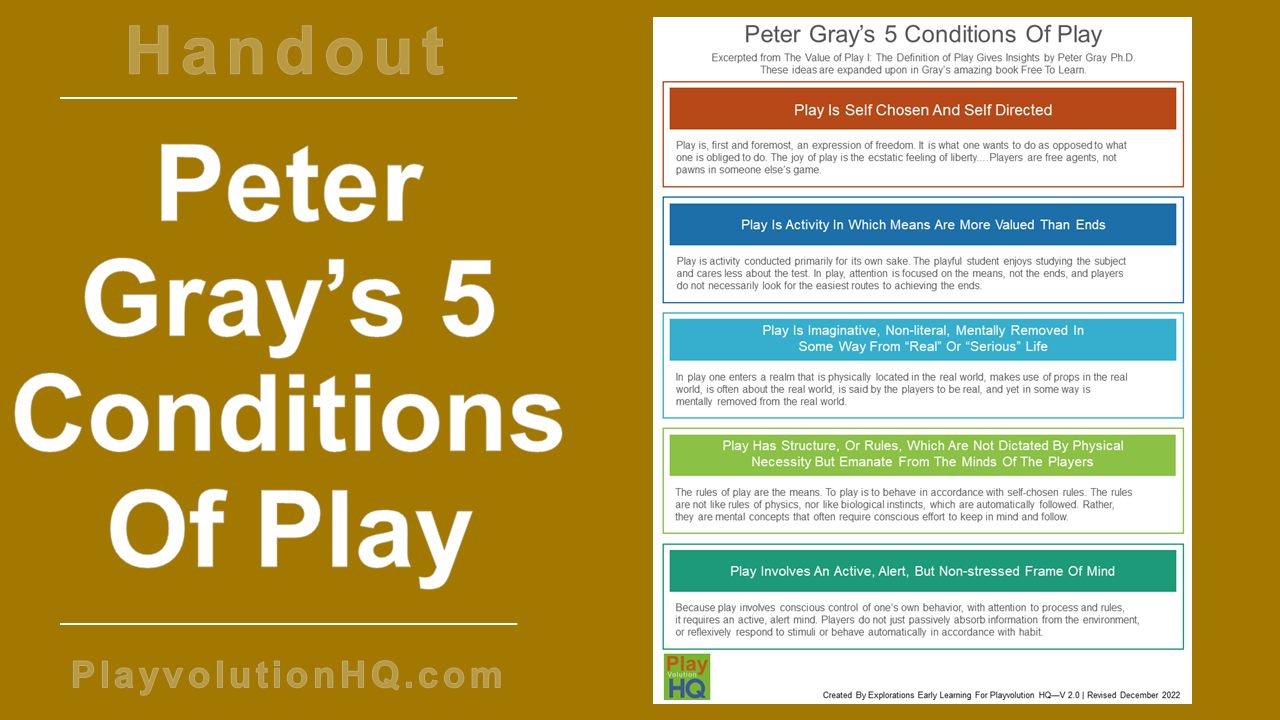
Exploration
Another big topic. Think of exploration as children getting out and engaging with the world hands-on. Young children are active learners and doers of things. They don’t learn by sitting and watching—they learn by doing, touching, looking, manipulating, contemplating.
At its core, heuristic play is all about exploration. Early childhood is full of exploration opportunities: blending play dough colors, examining a big juicy bug, or trying to understand the properties of water, for example.
Large Blocks Of Uninterrupted Time Wrap-Up
Young children—10 and under—need long, uninterrupted, self-directed blocks of time for play and exploration. These long periods allow them to dig deep, problem-solve, and engage meaningfully with the world.
Click the image for a list of books supporting large blocks of uninterrupted time for child-led play and exploration and other core Playvolution HQ values.
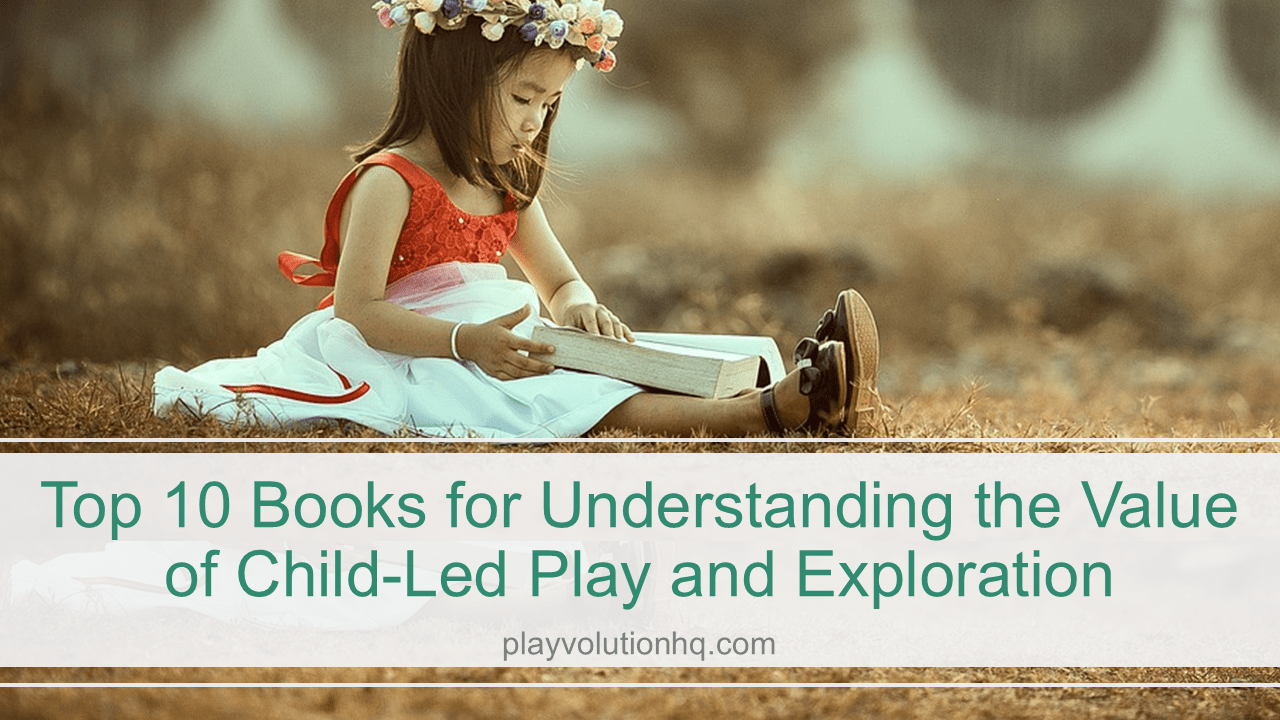
Contribute content to Playvolution HQ
Brought to you by Explorations Early Learning
Browse Trainings
Post Author
Jeff Johnson is an early learning trainer, podcaster, and author who founded Explorations Early Learning, Playvolution HQ, and Play Haven.

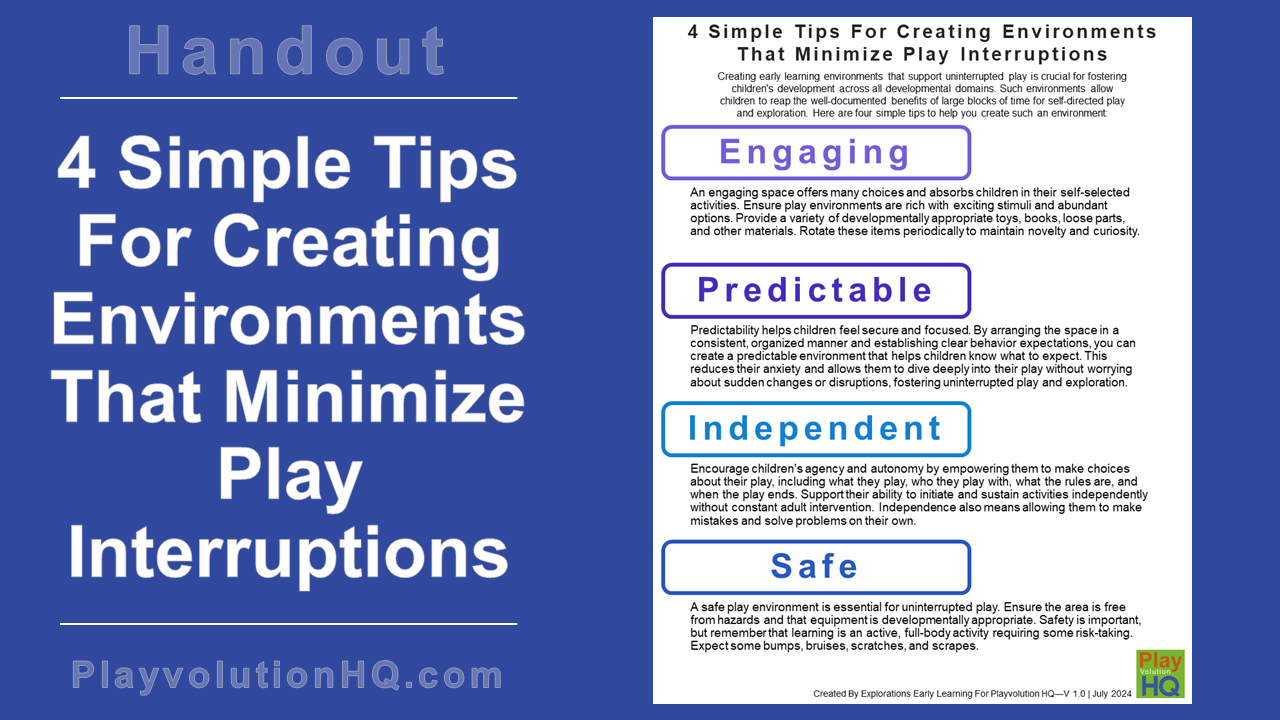
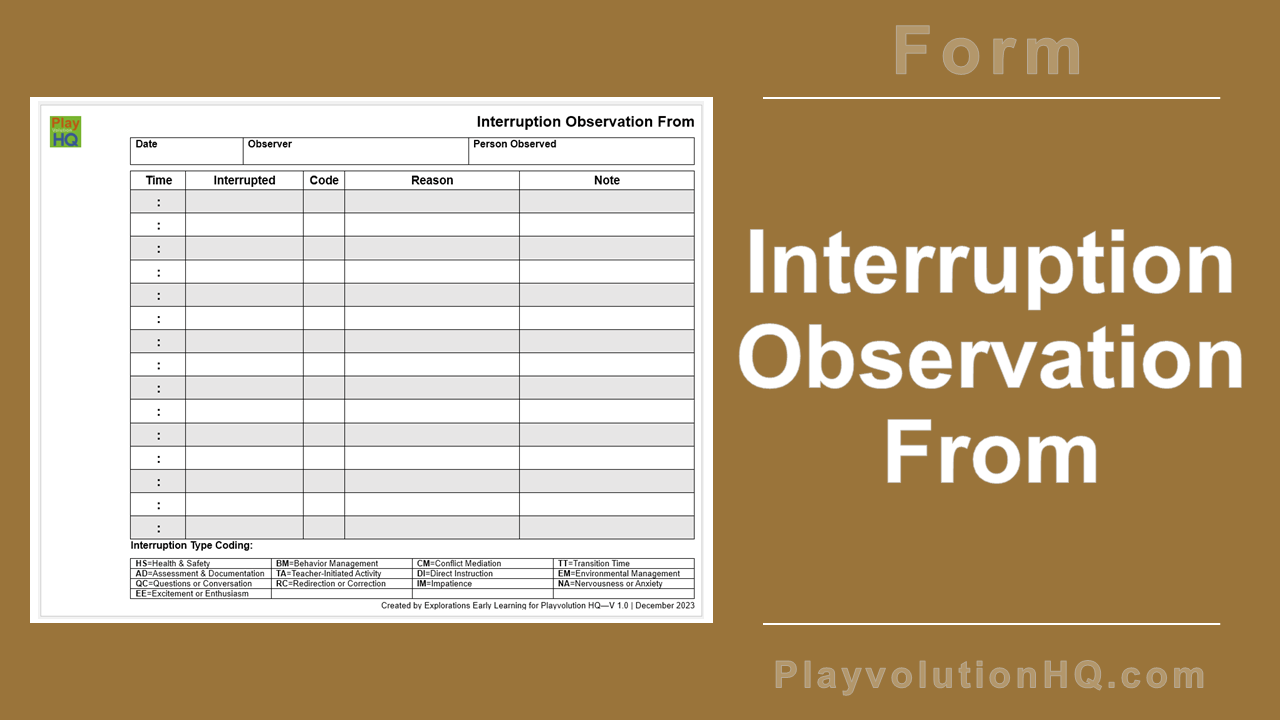
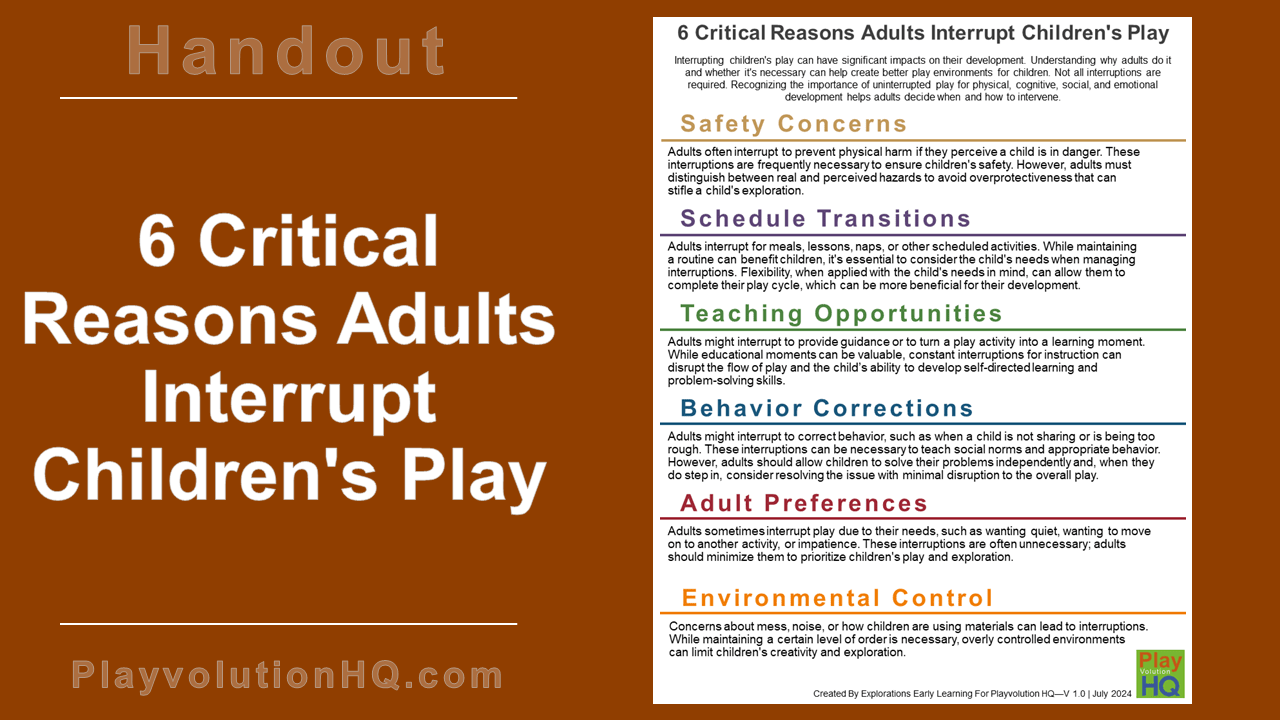
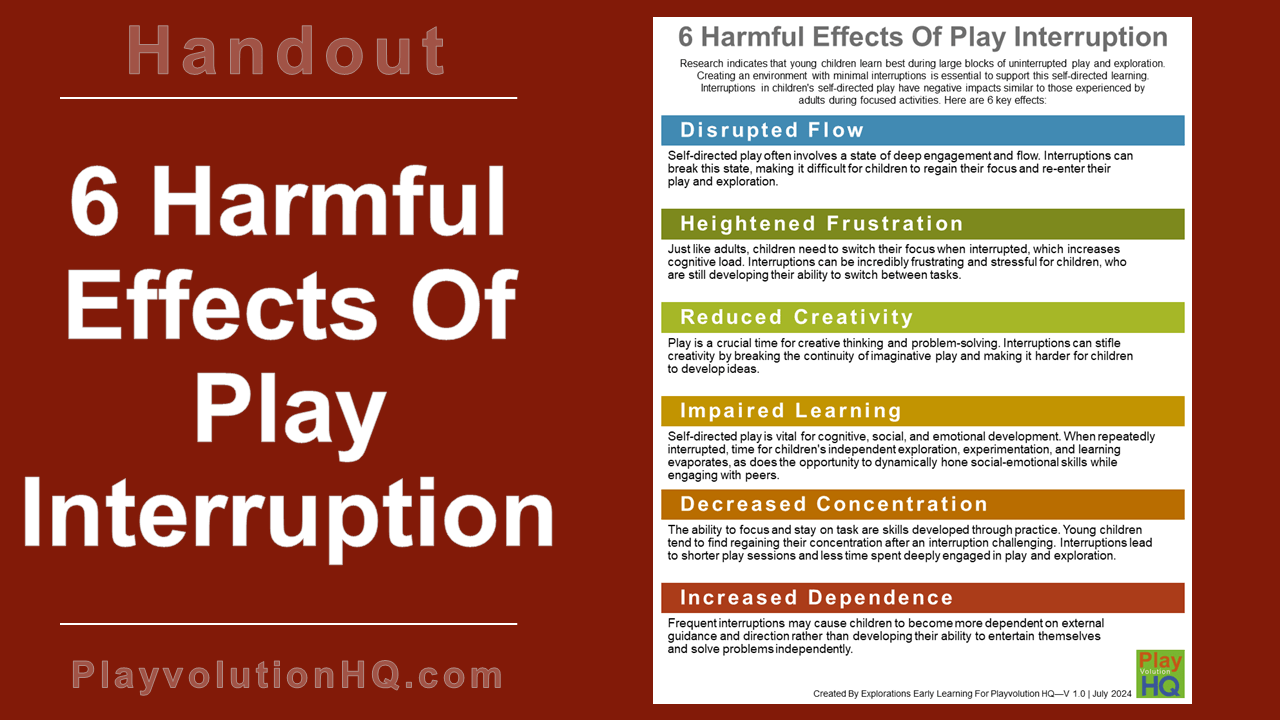

Leave a Reply